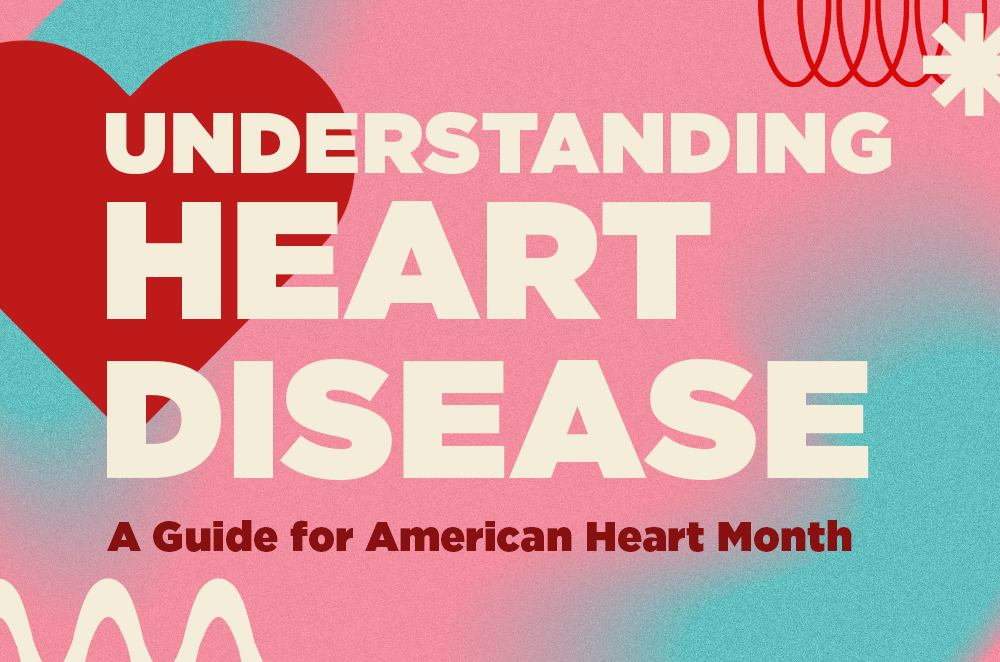February is not only the month of love, with Valentine’s Day at its center, but it’s also dedicated to matters of the heart in a different context. American Heart Month serves as a crucial reminder to prioritize our cardiovascular health. In this comprehensive guide, we’ll explore various heart diseases, exploring their causes, symptoms, and risk factors to raise awareness and empower individuals to take charge of their heart health.
Coronary Artery Disease (CAD)
Coronary artery disease is the most common type of heart disease in the United States, impacting about 1 in 20 adults age 20 and older, as reported by the Centers for Disease Control and Prevention. It occurs when the blood vessels that supply the heart muscle become narrowed or blocked due to the buildup of plaque, leading to chest pain (angina), shortness of breath, and, in severe cases, heart attacks.
- Causes: High cholesterol, smoking, high blood pressure, and diabetes contribute to the development of CAD.
- Symptoms: Chest pain, discomfort, or pressure, shortness of breath, fatigue.
- Risk Factors: Age, family history, smoking, obesity, lack of physical activity.
Heart Failure
Heart failure doesn’t mean the heart stops beating; rather, it’s a condition where the heart can’t pump blood effectively. This can happen gradually or suddenly, leading to symptoms like fatigue, swelling in the legs, and shortness of breath.
- Causes: Coronary artery disease, high blood pressure, and diabetes are common contributors to heart failure.
- Symptoms: Fatigue, swelling in the legs and abdomen, persistent coughing.
- Risk Factors: Age, high blood pressure, diabetes, obesity, and certain medications.
Arrhythmias
Arrhythmias are irregular heartbeats, which can be too fast, too slow, or erratic. They can affect the heart’s ability to pump blood effectively, potentially leading to serious complications.
- Causes: Heart attacks, high blood pressure, diabetes, smoking, excessive alcohol consumption.
- Symptoms: Palpitations, dizziness, fainting, chest discomfort.
- Risk Factors: Age, family history, high blood pressure, smoking, excessive alcohol or caffeine intake.
Valvular Heart Diseases
This category involves problems with the heart valves, which regulate blood flow within the heart. Valvular heart diseases can lead to valve stenosis (narrowing) or regurgitation (leaking), affecting the heart’s efficiency.
- Causes: Aging, congenital heart defects, infections, and other heart conditions.
- Symptoms: Fatigue, shortness of breath, chest pain, irregular heartbeat.
- Risk Factors: Age, family history, history of certain infections, rheumatic fever.
Understanding the various heart diseases, their causes, symptoms, and risk factors is the first step toward a heart-healthy life. American Heart Month is a great time to reflect on our lifestyle choices, prioritize regular health check-ups, and adopt heart-healthy habits. By raising awareness and promoting preventative measures, we can collectively strive towards reducing the prevalence of heart diseases and ensuring a healthier, happier future for all.
If you or a family member are experiencing cardiac issues, reach out to CCMH’s Heart and Vascular Center at 580-250-4278. CCMH takes pride in offering the most extensive and advanced heart program in Southwest Oklahoma, providing cutting-edge cardiac procedures and comprehensive treatment for various heart conditions. Discover more about the services available at CCMH’s Heart and Vascular Center.
Resource:
https://www.heart.org/en/health-topics/consumer-healthcare/what-is-cardiovascular-disease
Disclaimer:
The Comanche County Memorial Hospital website does not provide specific medical advice for individual cases. Comanche County Memorial Hospital does not endorse any services obtained through information provided on this site, articles on the site or any links on this site.
Use of the information obtained by the Comanche County Memorial Hospital website does not replace medical advice given by a qualified medical provider to meet the medical needs of our readers or others.
While content is frequently updated, medical information changes quickly. Information may be out of date, and/or contain inaccuracies or typographical errors. For questions or concerns, please contact us at contact@ccmhhealth.com.

